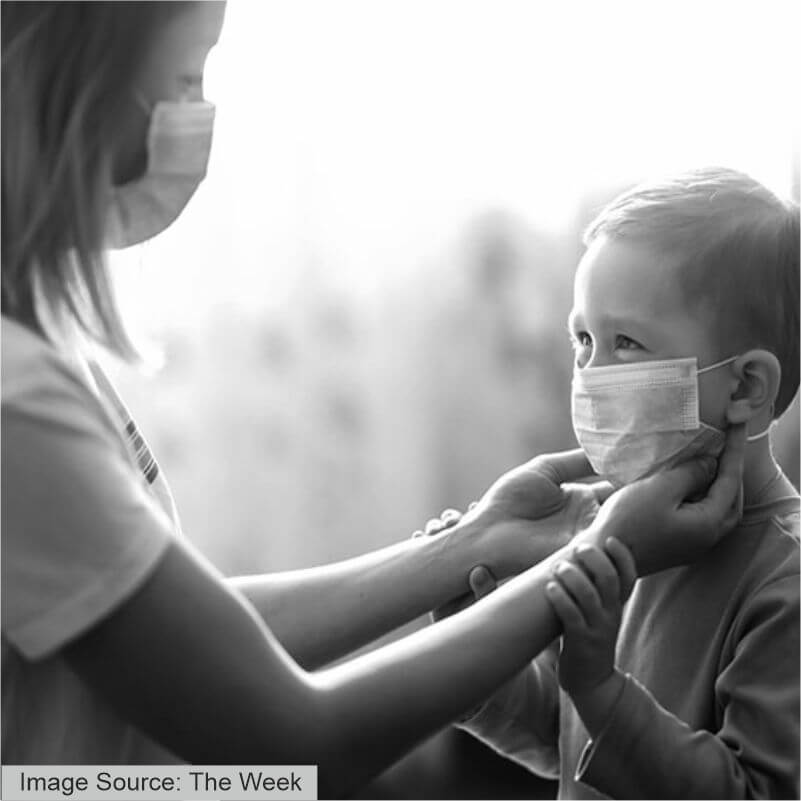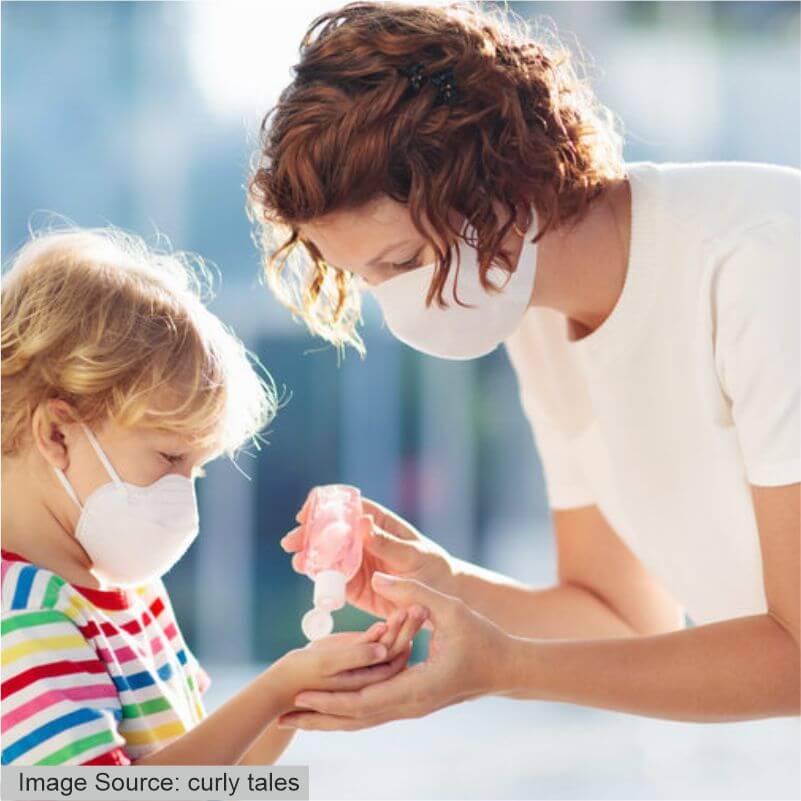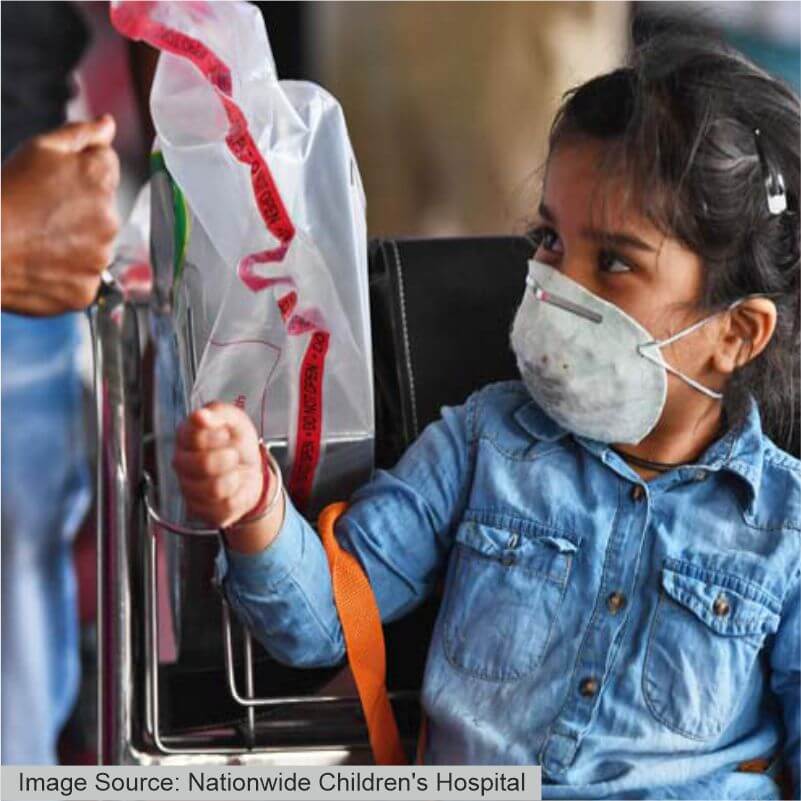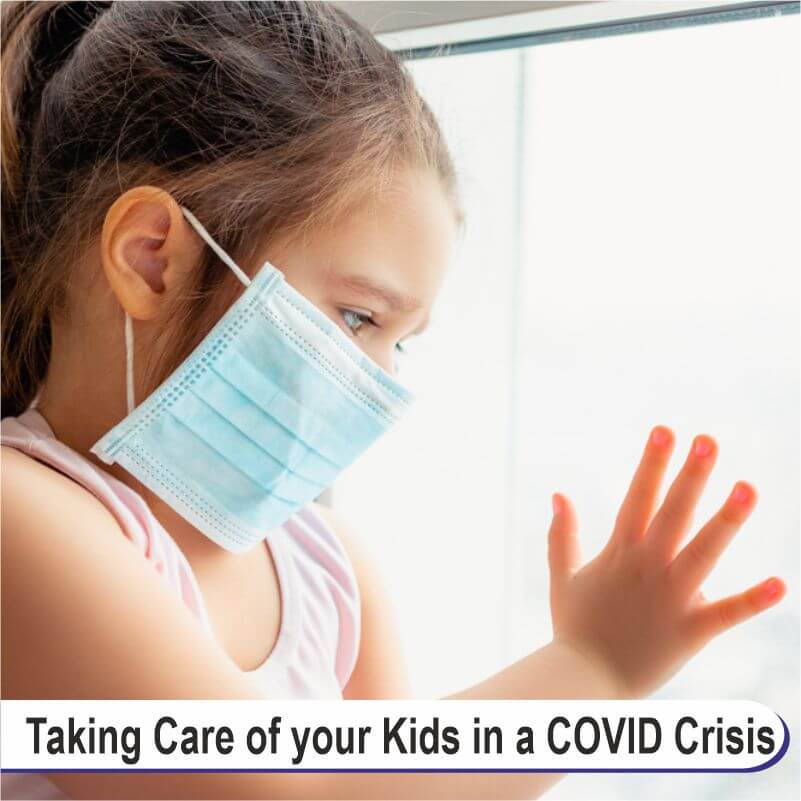The new strains of the COVID-19 virus are spreading faster and have proven to be more harmful than the initial strains. The second wave has hit not only the adults but also the children equally hard. Since the first lockdown, which began in the early months of 2020, the children have been almost trapped at home.
Online classes, exam pressures, and not being able to spend time with their peers, are making them suffer. Apart from this, there is additional mental pressure if they or people close to them, contract the virus. Watching their loved ones suffer from serious symptoms is increasing children's agony further.
Parenting during these tough times has become even more difficult. Parents live with a constant fear of their children contracting the virus, and having to go through the dangers of it all. The children of the frontline workers have been at the most risk since the pandemic began. Many adults who were working in the field were exposed to the virus and have seen a sudden disruption in their family routine affecting their children mentally as well as physically. With several frontline workers succumbing their lives to the virus, the sudden loss experienced by their children has also taken a toll on their emotional well-being.
Prevention is Better Than Cure

Like it has been taught to us for years, "Prevention is always better than Cure". To avoid facing the COVID - 19 symptoms, follow the mentioned practices in children during the lockdown.
1) Wash hands
Wash your hands with soap and water for 20 seconds, and encourage your child to do the same. If soap and water are not handy, use a hand sanitizer that contains at least 60% alcohol. Teach your child to cover all surfaces of their hands with hand sanitizer and rub their hands together until they feel dry. If your child is under 6 years of age, supervise them when they use a hand sanitizer.
2) Wear a mask
Make sure everyone in your household wears a mask (if 2 years of age or older) when in public and when around people who don’t live in your household. Assure your child wears their masks correctly and safely. Some children may find it challenging to wear a mask. If your child finds it challenging, you can consider alternatives, like a bandana or headscarf which are lightweight and easy to wash.
3) Avoid close contact
The pandemic and its dangers are still not over. Make sure your child and everyone else in your household keep at least 6 feet away from other people who don’t live with them and people who are sick. When coughing or sneezing, cover your mouth and nose with a tissue, throw your tissue in the closest garbage can, and wash your hands. Encourage your child and all household members to do the same.
4) Keep children mentally and physically active
Indoor games, activity books, and puzzles will be fun for children and a way to prevent them from remaining constantly glued to mobile games. They can be encouraged to pursue hobbies such as painting, reading storybooks, cooking, etc. Family yoga or doing simple exercises together can relieve stress and keep everyone healthy.
5) Help your child cope with stress
The pandemic has been stressful for both adults and children. Parents should learn a little bit about signs of stress in children, ways to support their children, and how to take care of their mental health as well.
Steps to take if your Child contracts COVID-19

Just like adults, the symptoms of coronavirus are not only limited to the upper respiratory tract. Most of the kids are experiencing symptoms like high fever, chills, shortness of breath, cough, loss of smell, sore throat, fatigue, muscle pain, and mucocutaneous inflammatory signs. Gastrointestinal (GI) symptoms vomiting, like loss of appetite and diarrhea, are also common in the younger population.
1) Follow the Basic Protocol
As soon as the symptoms of COVID-19 appear in kids it is important to quarantine them for 14 days. Get them tested for the presence of viruses and keep monitoring their oxygen saturation level. If the saturation is 94 percent give supportive care, adequate hydration, proper nutrition, and medicines as directed by your local physician.
2) Eat Well and Hydrate
Provide nutritious meals to your child, even if they are unable to taste or smell them. Eating meals filled with nutrients will support your body to recover. Stay hydrated and drink lots of water and fluids like smoothies and soups.
3) Communication is a Mus
Have open and direct conversations about the situation with your kids. Explain to them what is going on, and what needs to be done to make the situation better. If parents are isolating themselves from their kids, regular chats through phone and video calls might help the child stay in touch with their loved ones. This eliminates a feeling of fear and confusion from the child's mind.
4) Create a positive environment for Kids

The best way for you and your children to recover is by tackling the disease with optimism and positivity. A positive environment acts as a catalyst for a speedy recovery. Making the quarantine period bearable for children can be a difficult task. However, they need to be assured that this is just a phase and things will be better again. A little hope goes a long way.
At present, there is no vaccine available for kids below 18 years. However, pharmaceutical companies across the globe are carrying out tests to examine the safety and efficiency of vaccines among children. According to pediatricians, children are often fast spreaders of the disease. Get your child tested before letting them visit their grandparents to avoid the crisis further.
Make sure your child has completed their vaccinations as mentioned in the schedule by the doctors. Immunization is the best way of preventing any disease. Apart from that, various immunity-boosting ingredients lie citrus fruits, broccoli, spinach, almonds, and yogurt should be consumed on a daily basis. Following these little but significant steps can help all of us get through these tough times and ensure a healthy lifestyle in the long run.
